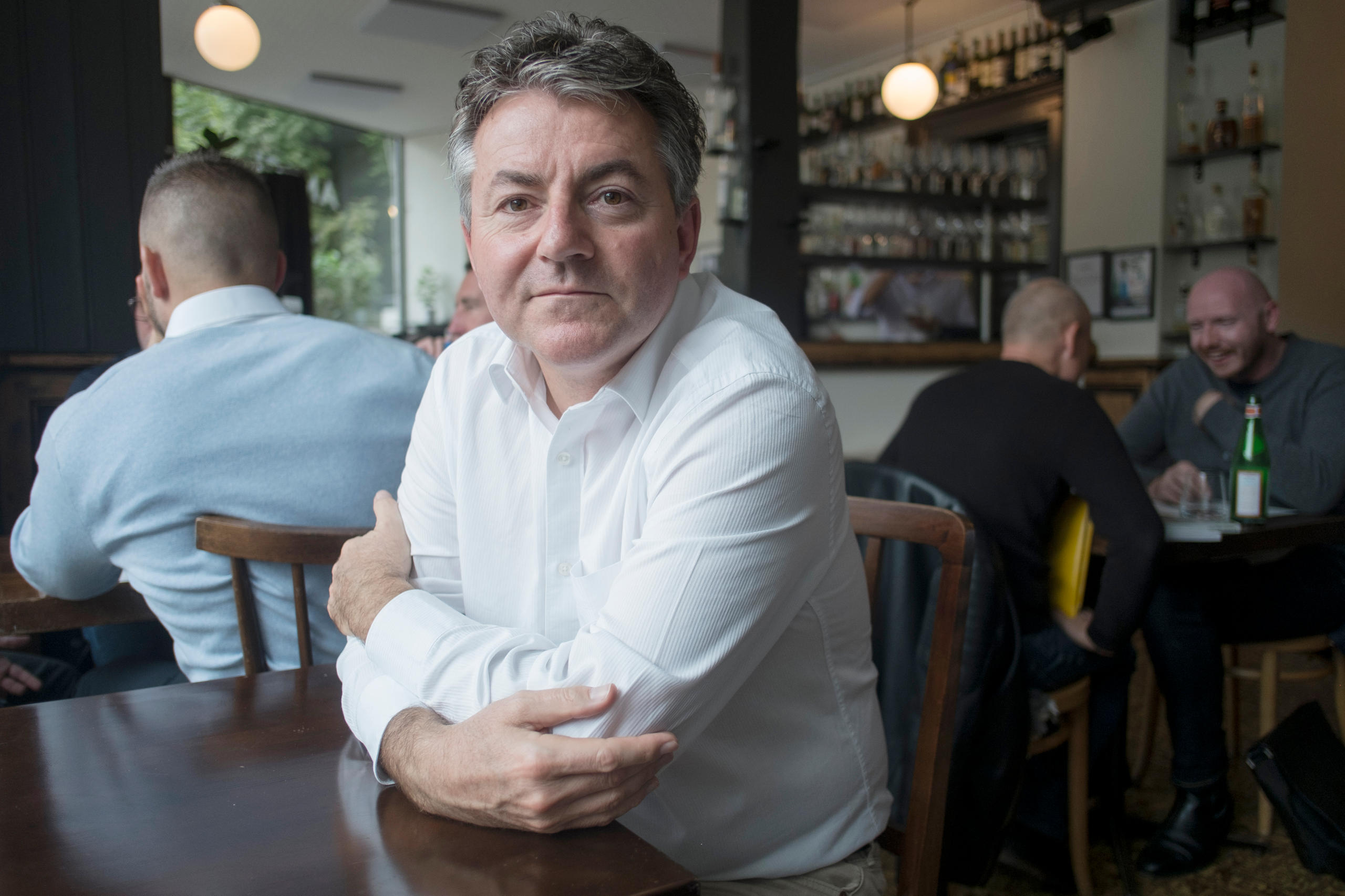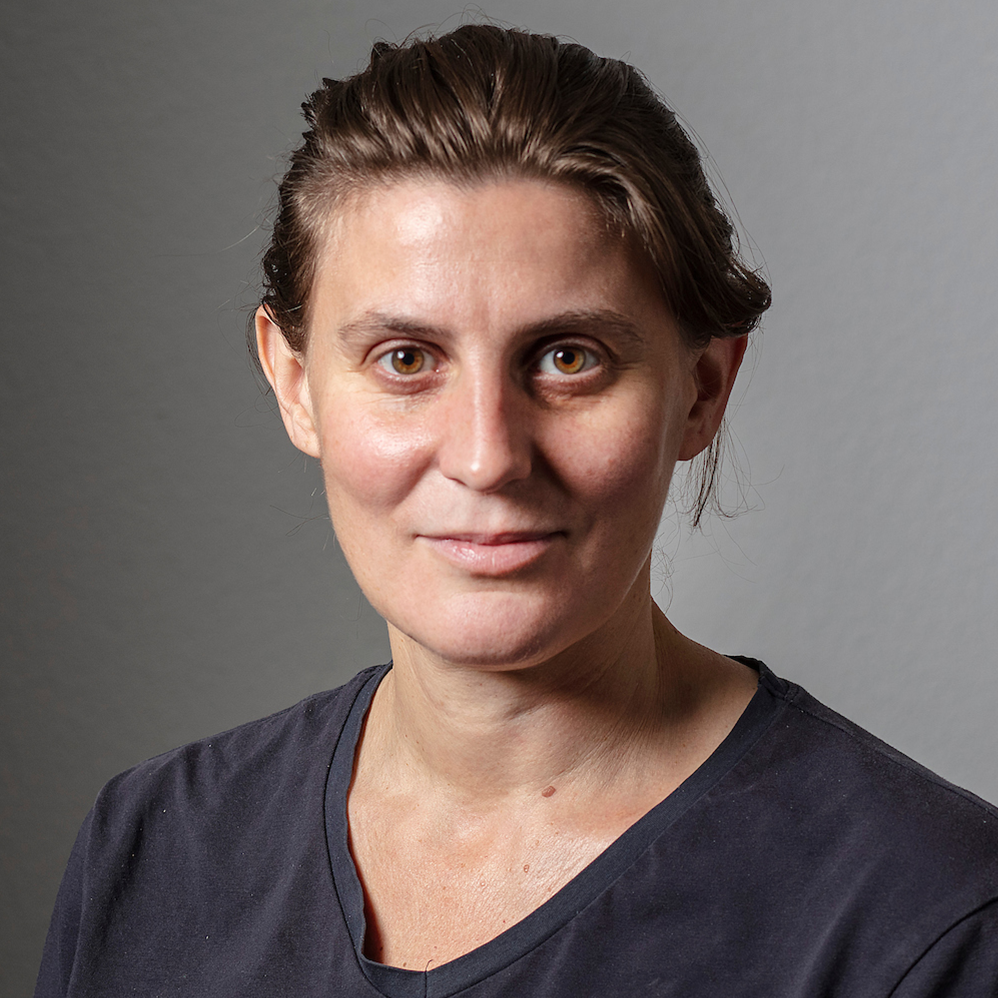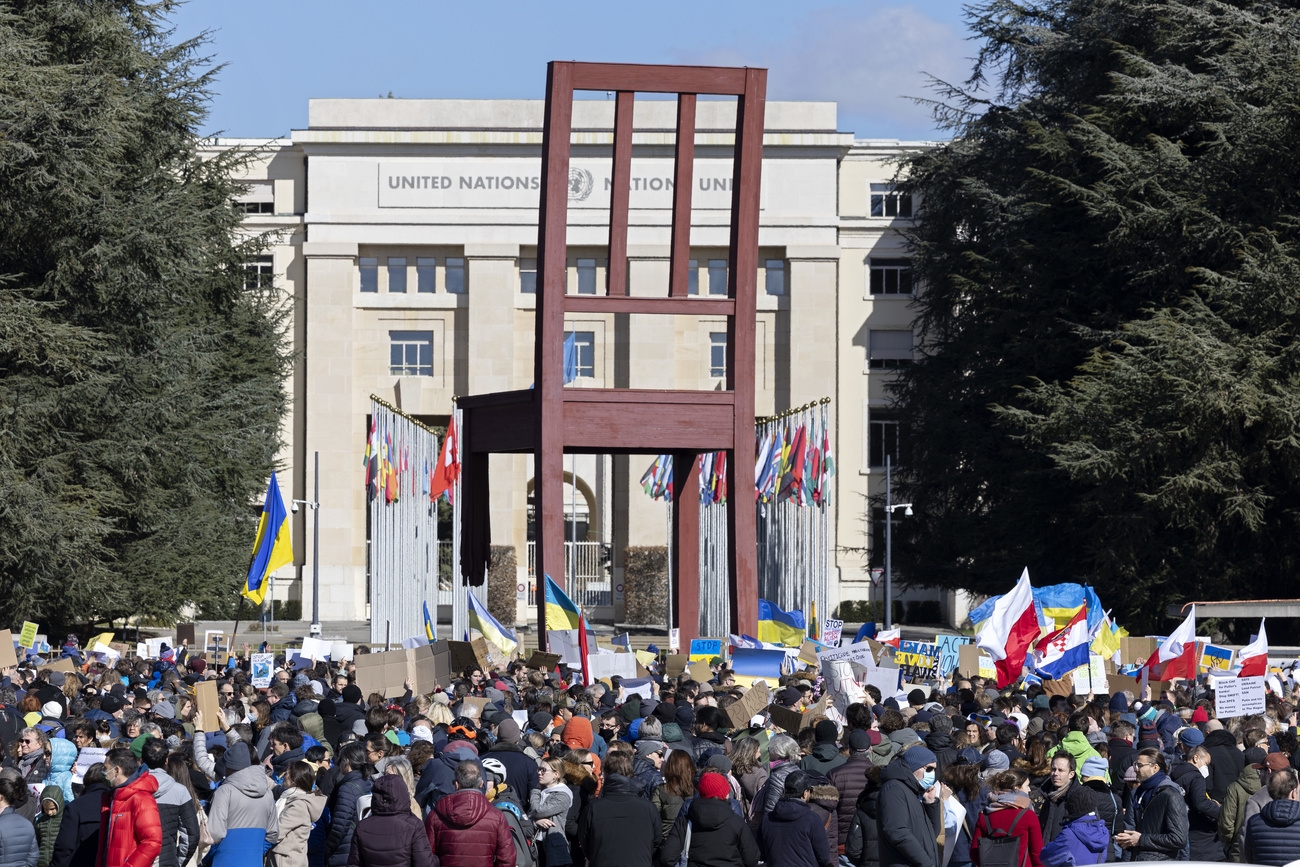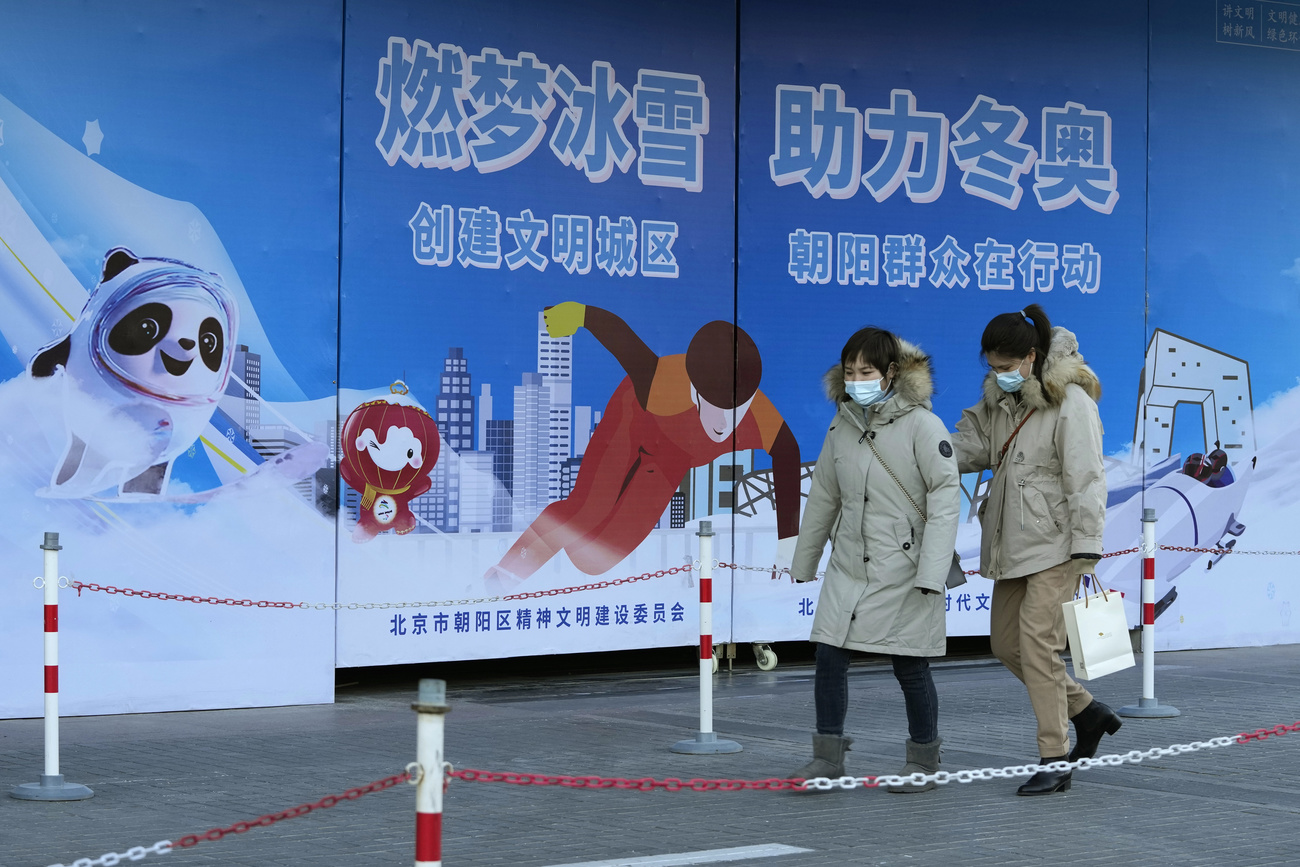‘The IOC is under pressure from the West’

The war in Ukraine is forcing the International Olympic Committee to choose between peace and human rights on the one hand, and neutrality on the other. An expert on the Olympic movement explains how the IOC could extract itself from this dilemma.
A rift between the International Olympic Committee (IOC) and Russia is deepening. After the invasion of Ukraine, the IOC president, Thomas Bach, recommended banning Russian athletes outright from sporting events. He later backtracked, advising that they be allowed to compete under a neutral flag.
Russia, meanwhile, is threatening to launch a network of sports competitions together with China, Brazil, India and South Africa. As for Ukraine, it says that it will not take part in the 2024 Summer Games in Paris if Russian athletes are present.
The IOC president fears that international sport is splitting into two political blocs. In such a case, Bach recently warned, “universal Olympic Games would no longer be possible”.
With just one year to go until the Paris Olympics, how can the IOC break free from this deadlock? Should its principle of neutrality take precedence over the interests of Ukrainian athletes? In an interview with SWI swissinfo.ch, Patrick Clastres, a sports historian at the University of Lausanne who specialises in the Olympic movement, shared his views on the IOC’s prevarication and whether or not international sport is at risk of being split apart.
SWI swissinfo.ch: The IOC did not react when Russia invaded Georgia and Crimea. So why was IOC president Thomas Bach so quick to call for Russian and Belarusian athletes to be banned in 2022?
Patrick Clastres: This is the third time that Vladimir Putin has breached the Olympic Truce: the destabilisation and dismemberment of Georgia took place during the Beijing Summer Olympics in 2008, the annexation of Crimea during the Sochi Winter Olympics in 2014, and the military invasion of Ukraine on February 24, 2022, four days after the end of the Beijing Winter Olympics. International condemnation is definitely much stronger this time than it was in 2008 or 2014.
And Putin’s goal of restoring the former Russian empire has become so evident that it poses a threat to the Baltic States, Poland, Moldova and Finland. Thomas Bach is also under pressure, via social media, from Olympic athletes and leaders in Germany, the United Kingdom, the United States, Canada, Norway and Sweden. Meanwhile other countries, such as Switzerland, France and the peninsular states of Europe, are keeping a low profile: is this out of pure respect for sporting neutrality, or rather a sign of poor democratic health?
“Getting back to the IOC, it is also under pressure…from the sponsors of international sport, mainly from Western countries, who want to distance themselves from the warring camp.”
Getting back to the IOC, it is also under pressure – less visibly, but crucially – from the sponsors of international sport, mainly from Western countries, who want to distance themselves from the warring camp. Lastly, the 2022 decision to ban Russian athletes enabled the IOC to benefit, in the ensuing months, from the decline in Russian influence within several international sports federations. We should not forget that Bach was duped by the institutional doping system put in place in Russia between 2011 and 2015, and the intentional erasure of data and evidence that followed.
SWI: Thomas Bach banned Russian athletes on February 28, 2022, and then back-pedalled on January 25, 2023. What was the reason for this turn-around?
P.C.: Four days after the invasion of Ukraine, Bach called on the international federations to ban Russian and Belarusian athletes from their competitions, to put an end to international sports competitions in these two countries, and to suspend their sports leaders from any international duties. He did so in the name of the Olympic Truce, proclaimed by the UN General Assembly and which begins one week before [the Games] and ends one week after the [Paralympic Games]. The federations immediately complied, except for the shooting, boxing, sambo [a martial art and combat sport] and judo federations, whose leaders are close to Putin.
It therefore came as a surprise to many when Bach announced in January that he was “looking for a way” to reintegrate Russian and Belarusian athletes into international sports competitions. But he was responding to an urgent need: to enable athletes from these two countries to take part in the qualifying events for the Paris Olympics, should the war end before summer 2024.
The clock is ticking for the IOC if it still wants to embody the ideal of Olympic universalism. Given the obvious reticence of several European National Olympic Committees [NOCs], Bach announced that the Asian association of NOCs had offered to host Russian and Belarusian athletes in its own competitions to enable them to qualify.
SWI: Then, on March 28, 2023, Bach caused another sensation by recommending that Russian and Belarusian athletes be allowed to return to international competition, as individuals under a neutral flag. Can we expect to see a large Russian delegation in Paris?
P.C: In light of the outcry unleashed by his statement of January 25, at least in the West, Bach was at pains to clarify the IOC’s position without prejudicing a future decision on the Paris Olympics. While extending financial assistance to the Ukrainian NOC, he asked the international federations to make sure that Russian and Belarusian passport-holders could only compete as individuals (so no team sports that would represent the nation), and under a neutral banner (with no flag, logo, anthem or position on the medal table, and wearing only white or unicolour clothing). He added three conditions: that the athletes complied with all the rules of the World Anti-Doping Code, that they had not actively supported the war in Ukraine, and that they were not contracted to the military or security services. This shows the IOC’s ability to come up with new and original diplomatic solutions.
Although these last two conditions were considered discriminatory by one of the two United Nations experts called upon by the IOC, they are commensurate with the goal pursued: to not deprive athletes who are not responsible for the war from taking part in the Olympic Games. This set off a veritable cacophony of reactions. Most of the federations followed the IOC’s recommendations, albeit with some delayed reactions that betrayed a certain continued Russian influence. Others (namely the athletics, badminton, equestrian, climbing and surfing federations) refused to do so.
It is far from certain that, in the end, many athletes from Russia and Belarus will qualify for Paris 2024. To avoid the embarrassment of having just a minimal presence, Putin may decide not to send any athletes. The IOC would thus maintain its neutrality while avoiding a boycott by Ukraine and its allies.
SWI: Ukraine has said it will not take part in any competitions involving Russian and Belarusian athletes, and that it may therefore not attend the 2024 Games. In response, the IOC invoked the obligation of the NOCs to take part, as enshrined in the Olympic Charter. What does this all mean?
P.C: The Ukrainian government is playing its part and using this threat as a tool of sporting soft power.
As for the IOC’s response, it is a kind of bravado that reveals the body’s helplessness in the face of this diplomatic and sporting imbroglio. Is it actually possible that in 2024, in Paris – the City of Light – Ukraine will be absent and Russia and Belarus present, even under a neutral banner? The IOC’s reaction here is to say that Olympic universalism would lose all meaning if the 70 countries currently at war had to be excluded, or if the Games were restricted only to democracies, which are, in fact, a minority in the world. The vast majority of conflicts today are latent civil and border wars. A war of annexation like the one being waged by Russia is unique, especially in Europe, which was the epicentre of two world wars.
And if democracies are in the minority in the world, this doesn’t justify not denouncing violations of human rights, whose universalism is denied by the very regimes that support Russia. It all depends what side the IOC wants to be seen to be on.
“The IOC’s reaction here is to say that Olympic universalism would lose all meaning if…the Games were restricted only to democracies, which are, in fact, a minority in the world.”
Some people also criticise the double standards of those now calling for tough action, but who did not demand the banning of the United Kingdom and the United States from the Olympic Games during the war they waged in Iraq in breach of international law. But this is to forget that many citizens and politicians in the West were opposed to this war.
To avoid falling into double standards itself, the IOC should adopt clear rules and explicitly declare itself in favour of the exclusion from the Games of any country that wages a war of annexation, and include in its Charter a binding framework for the participation of athletes from the countries in question. It would then fully return to its founding mission of promoting international peace through sport.
SWI: Does the recent rapprochement between China and Russia, which is also embracing some countries on the African continent, not raise the risk of parallel international sports organisations emerging?
P.C: The IOC’s backtracking can indeed be explained by its age-old fear of the emergence of rival international sports organisations. The Russians are certainly flexing their sports-diplomacy muscles in this standoff.
“The IOC’s backtracking can indeed be explained by its age-old fear of the emergence of rival international sports organisations.”
In June 2022, the Russian sports minister Oleg Matytsin, who is the former president of the International University Sports Federation, travelled to India to strengthen exchange within the Shanghai Cooperation Organisation (SCO) in the field of sports. Set up by China, Russia, Kazakhstan, Kyrgyzstan, Uzbekistan and Tajikistan for economic and strategic purposes in 2001, this body can be seen as a counterpart to the OECD and NATO. India and Pakistan have since joined the SCO, and Iran, Belarus, Afghanistan and Mongolia are poised to do so as well. Matytsin has also established ties with South Africa, Brazil, Bosnia, Mali, Peru and some of the Gulf countries, which suggests an expansion of the SCO’s sports cooperation to the Global South.
Putin and Matytsin recently invited the SCO sports ministers to send their athletics teams to the University International Sports Festival in Yekaterinburg in August 2023, as well as to the Friendship Games that are scheduled to take place in Kazan right after the Paris Games, and to the next Russia-Islamic World [economic] forum. So in 2024, the world of sports could be split into two, with the Olympic Games of liberal democracies on the one hand and the “Friendship Games” of authoritarian regimes on the other. This is what IOC president Bach also wants to avoid, by giving the impression he is back-pedalling.
SWI: Can the IOC remain neutral?
P.C: The argument that international sports organisations must remain neutral has already been used in the past, for instance during the Berlin Games. In August 1936, as Germany was preparing for war, Hitler declared: “Sporting and chivalrous competition awakens the best human qualities. It does not sever, but on the contrary, unites the opponents in mutual understanding and reciprocal respect. It also helps to strengthen the bonds of peace between the nations. May the Olympic Flame therefore never be extinguished.” Meanwhile, the IOC president at the time, the Belgian count Henri de Baillet-Latour, concluded that: “Berlin was the meeting place of all peoples, and from there a unity was diffused without which neither peace nor happiness can ever be realised.” By refusing to withdraw responsibility for holding the Games from the Third Reich, as demanded by millions of peace and pro-democracy activists on both sides of the Atlantic, the IOC served Hitler’s cause. This has left an indelible stain on the committee’s history that it is still unwilling to face up to.
Staying out of the fray would mean allowing Olympic universalism to become the Trojan horse of the enemies of peace and human rights. Drawing on the lessons of the past, the IOC must learn to choose the side of peace as being inseparably linked to freedoms and human rights.
“By refusing to withdraw responsibility for holding the Games from the Third Reich…the IOC served Hitler’s cause. This has left an indelible stain on the committee’s history that it is still unwilling to face up to.”
The committee is, in a way, fortunate not to be built on the same model as the United Nations, with a General Assembly where each country carries one vote and a Security Council that can block initiatives through its right of veto.
Thanks to its system of recruitment by co-optation, which is by no means democratic, the IOC could very well select its members from among sports leaders who champion freedoms, instead of letting authoritarian regimes impose their choices on it. It would then become a fully autonomous institution that acts as the guardian of democracy and peace in the sporting world – thereby also sparing athletes from having to take political risks. It is only then, and on this condition alone, that the IOC could one day aspire to win the Nobel Peace Prize.
Edited by Samuel Jaberg. Translated from French by Julia Bassam/gw

In compliance with the JTI standards
More: SWI swissinfo.ch certified by the Journalism Trust Initiative











You can find an overview of ongoing debates with our journalists here . Please join us!
If you want to start a conversation about a topic raised in this article or want to report factual errors, email us at english@swissinfo.ch.